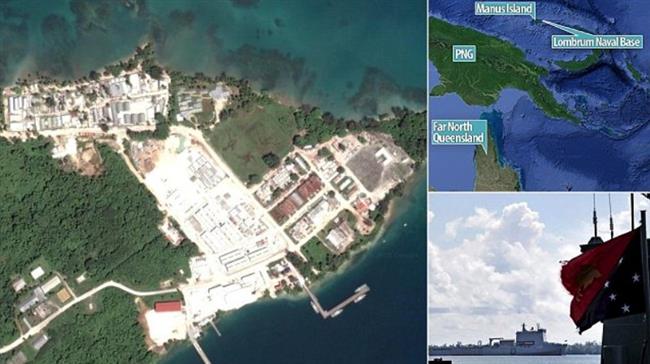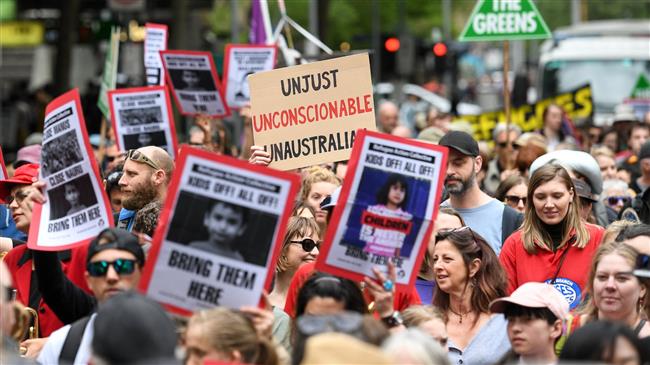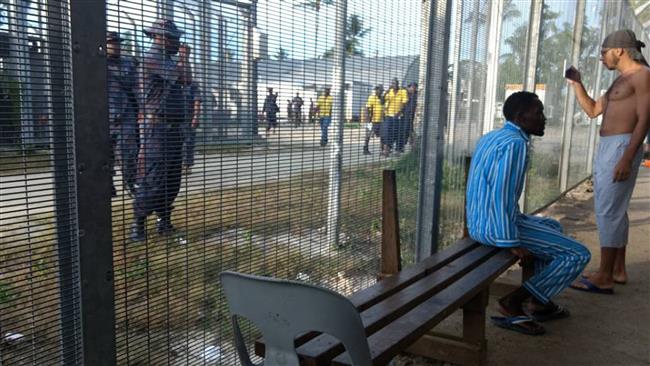UN, doctors censure Australia over condition of off-shore refugees
The United Nations and a group of Australian doctors have roundly criticized the Australian government over the dire conditions of refugees in off-shore detention centers on two Pacific islands.
On Monday, a spokeswoman for the UN Refugee Agency (UNHCR) in Canberra accused Australia’s "bureaucrats and politicians" of overruling doctors and putting lives at risk at camps on the Pacific islands of Nauru and Manus.
Hundreds of people have been unlawfully held in detention on Nauru and Manus for up to nine years without charge, according to the UN.
Reports of catastrophic mental and physical health conditions experienced by the refugees, especially children, have brought Prime Minister Scott Morrison under intense pressure to allow sick children and their families into the country.
UN spokeswoman Catherine Stubberfield decried the Australian government's refugee detention policy as "sold too simplistically" and said changing it was now a matter of "basic human treatment and decency."
She said that the government "retains responsibility for those it has relocated under so-called 'offshore processing.'"
Eyewitnesses have reported a dire situation at the camps on Nauru, with many families living under constant fear of their loved ones committing suicide.
Doctors without Borders (MSF), which was forced to leave Nauru in October, reported on Monday that almost a third of the people it had treated on the Pacific island had reported attempted suicide.

“MSF’s data shows that Nauru is in the grip of a mental health crisis,” the report said. “The mental health suffering on Nauru is among the most severe MSF has ever seen, including in projects providing care for victims of torture.”
A dozen patients, MSF said, had been diagnosed with "resignation syndrome" — a condition that causes people to remain in a semi-comatose state and unable to eat or drink.
The international medical non-governmental organization said that from among the 208 asylum seekers it had treated on Nauru, 124 had had suicidal thoughts and 63 had actually attempted suicide.
Meanwhile, the Royal Australasian College of Physicians (RACP) also said on Monday that access to medical care "must be determined by a doctor — not a politician.”
It called on the government to transfer the remaining children from Nauru, and to allow urgent medical transfer for adult refugees and asylum seekers on the basis of medical advice.
Morrison, however, claimed last month that there “are more medical professionals on Nauru than there are children.”
A large number of Australians, polls show, demand that the government bring the remaining children to Australia.

Over the last months, thousands of people have taken to the streets in Australian cities, including Sydney and Melbourne, to demand that asylum seekers be brought to the country.
The Australian government has refused to resettle any of the asylum seekers who have tried to reach its shores by boat. Instead, it has relocated them to the off-shore camps.
It also has stopped publishing data on the number of refugees held in the centers. Refugee advocates estimate that 600 people are detained on Manus and a further 500 on Nauru.
VIDEO | Declared dead, found breathing: The miraculous survival of Najwa after Israeli bombing of Gaza
Israeli solar projects in West Bank expand illegal settlements: Report
Shift in multi-tier forex rate to improve economy
VIDEO | Press TV's news headlines
Zelensky’s name appears over 50 times in Epstein files: Opposition leader
Tehran rejects Trump’s riot death toll, demands proof
VIDEO | Police battle opposition protesters in Albanian capital
Israeli expansion across West Asia would be ‘fine’: US envoy














 This makes it easy to access the Press TV website
This makes it easy to access the Press TV website